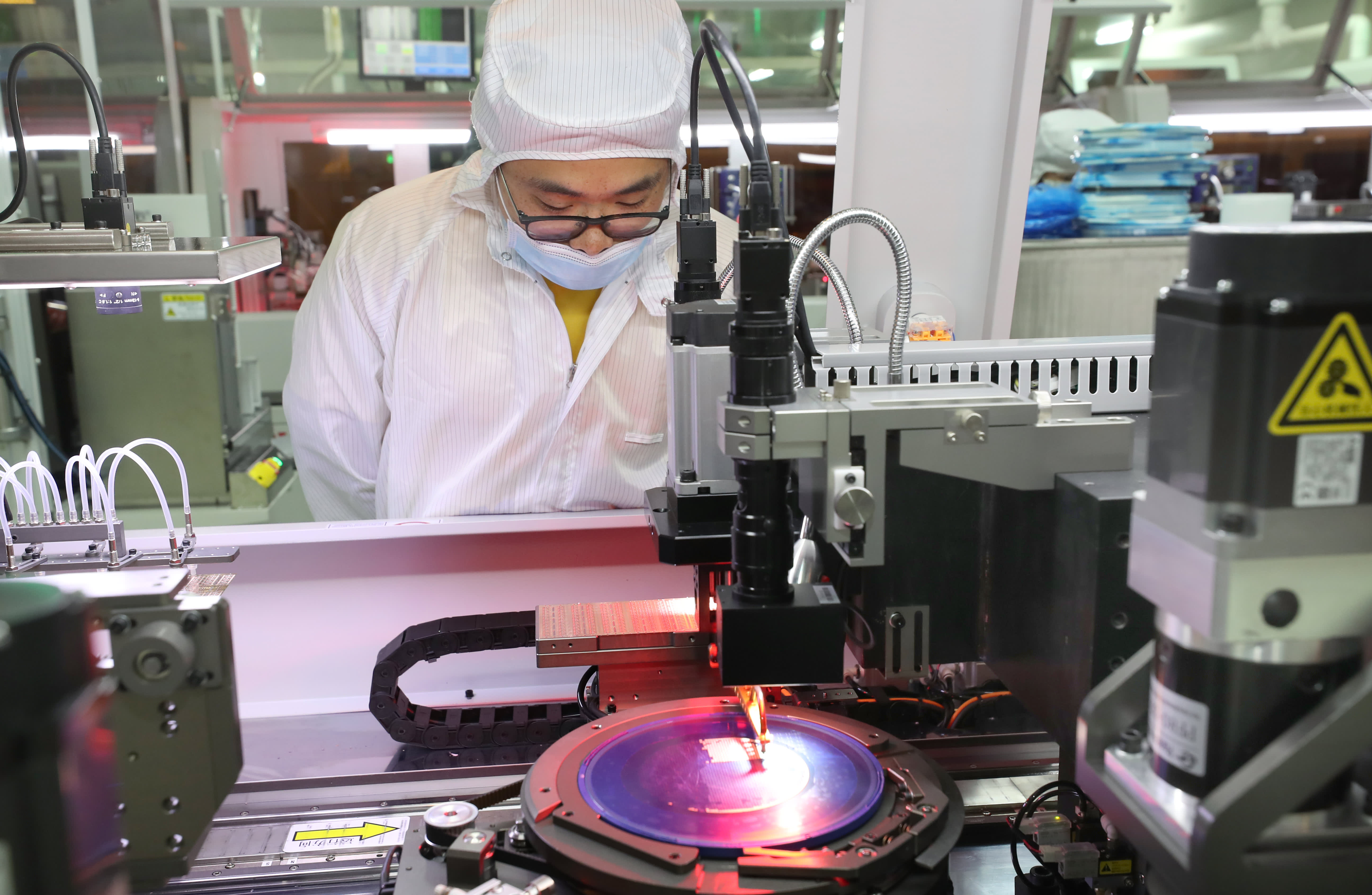Senate passes bipartisan tech and manufacturing bill aimed at countering China

Employees work on the production line of silicon wafer at a workshop of Jiejie Semiconductor Co., Ltd on March 17, 2021 in Nantong, Jiangsu Province of China.
Xu Congjun | Visual China Group | Getty Images
The Senate on Tuesday passed one of the largest industrial bills in U.S. history in a bipartisan effort to ensure the U.S. remains competitive with China as one of the globe’s technological powerhouses.
The bill includes funding for scientific research, subsidies for chipmakers and robot makers, and an overhaul of the National Science Foundation.
The scope of the bill, the final product of at least six Senate committees and almost all members of the chamber, reflects the myriad fronts in the U.S.-China rivalry.
It also likely represents one of the last major bipartisan initiatives of 2021, proof that U.S. lawmakers are broadly in favor of legislation that works to counter Beijing’s economic and military expansion.
Failure to expand the nation’s semiconductor production, or reroute rare earths supply chains, advocates say, could leave the U.S. at a strategic disadvantage in the years ahead.
The largest part of the U.S. Innovation and Competition Act is a proposal previously known as “Endless Frontier,” written by Schumer and Sen. Todd Young, Republican of Indiana.
Endless Frontier would overhaul the National Science Foundation, appropriate $81 billion for the NSF between fiscal 2022 and 2026, and establish a Directorate for Technology and Innovation.
The bill would also fund a grant program managed by the Commerce Department that would match financial incentives offered by states and local governments to chipmakers who improve upon or build new factories.
The bill’s success in the Senate also comes as the White House ramps up its own recommendations on how to secure American supply chains that run through China and counteract Beijing’s geopolitical ambitions.
The White House announced on Friday that it will expand restrictions on American investments in certain Chinese companies with alleged ties to the country’s military and surveillance efforts, adding more firms to a growing U.S. blacklist.
Then, on Tuesday, the White House said that it will look into dramatically expanding U.S. production of lithium batteries, rare earth minerals and semiconductors.
While debate over several amendments prevented the Senate from passing the legislation before the Memorial Day recess, the bipartisan passion for ensuring the U.S. remains competitive is expected to support its case in the House.
The chamber is expected to consider the legislation in the coming weeks, though perhaps at a slower pace as representatives hash out various sections.




